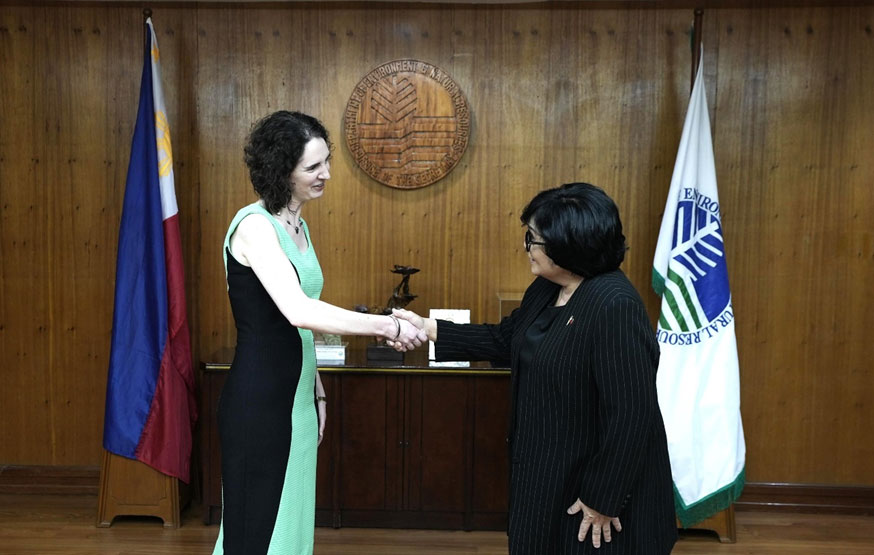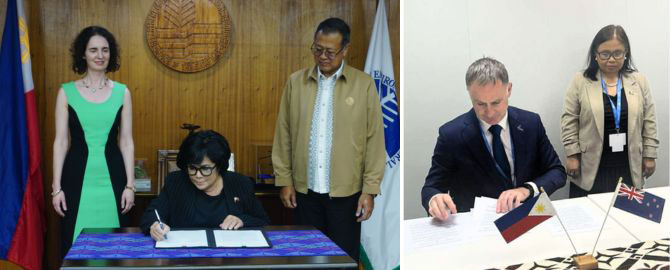
QUEZON CITY, November 22, 2024 – The Philippines and New Zealand signed a joint declaration and areas of cooperation on climate change on November 19 as a demonstration of the two countries’ commitment to the goals of the Paris Agreement and the transition to a low-emissions economy.
Department of Environment and Natural Resources (DENR) Secretary Maria Antonia Yulo Loyzaga and New Zealand Minister of Climate Change Simon Watts signed in parallel the joint declaration at the DENR Central Office in Quezon City and at the ongoing COP29 in Baku, Azerbaijan, respectively.
“Our government and the New Zealand’s are united by a common purpose: to build climate-resilient communities while accelerating the transition to a low-emissions economy,” said Secretary Loyzaga. Given the Philippines’ vulnerability to the impact of climate change, our focus really is to navigate the complexities of driving economic recovery and inclusive growth, balancing the immediate needs of our people with long-term sustainability goals.”
The declaration sets an 18-month timetable to formalize the framework for enhancing the partnership on climate change, focusing on innovation, cooperation and sustainable development in pursuing job creation, investment opportunities, and economic growth.
Reaffirming their commitment to fully implement the Paris Agreement, the two countries acknowledged the importance of aligning financial flows with low-emission and climate-resilient development.

“Aligning our actions with the goals set in the Paris Agreement helped us recognize that transitioning to a low-emissions economy is not merely a policy objective but a moral imperative, which is why in this cooperation, we aim to build a model of inclusive growth that responds to both the urgency of the present and the promise of a sustainable future,” Secretary Loyzaga said.
The joint declaration states a “common aim to reduce the impacts of climate change and prepare for its future impact, through the transition to a net-zero greenhouse gas emissions economy that is cost-effective, using evidence-based policies, while enabling private investment and partnerships, access to the best available science and technology, international engagement and knowledge sharing and competitive markets.
It also affirms that cooperation between governments can enable the sharing of best practices and support the development of innovative and effective solutions to avoid and reduce greenhouse gas emissions and adapt to the impacts of climate change.
The declaration emphasized the importance of carbon pricing and the elimination of harmful subsidies as critical tools for reducing greenhouse gas emissions to limit global average temperature rise to 1.5°C.
The bilateral engagement served as a critical follow-through on the official visit of New Zealand Prime Minister Christopher Luxon to Manila in April 2024 when he met with President Ferdinand Marcos, Jr., and more recently, the technical discussions conducted by climate change officials in October 2024 in Manila. #












